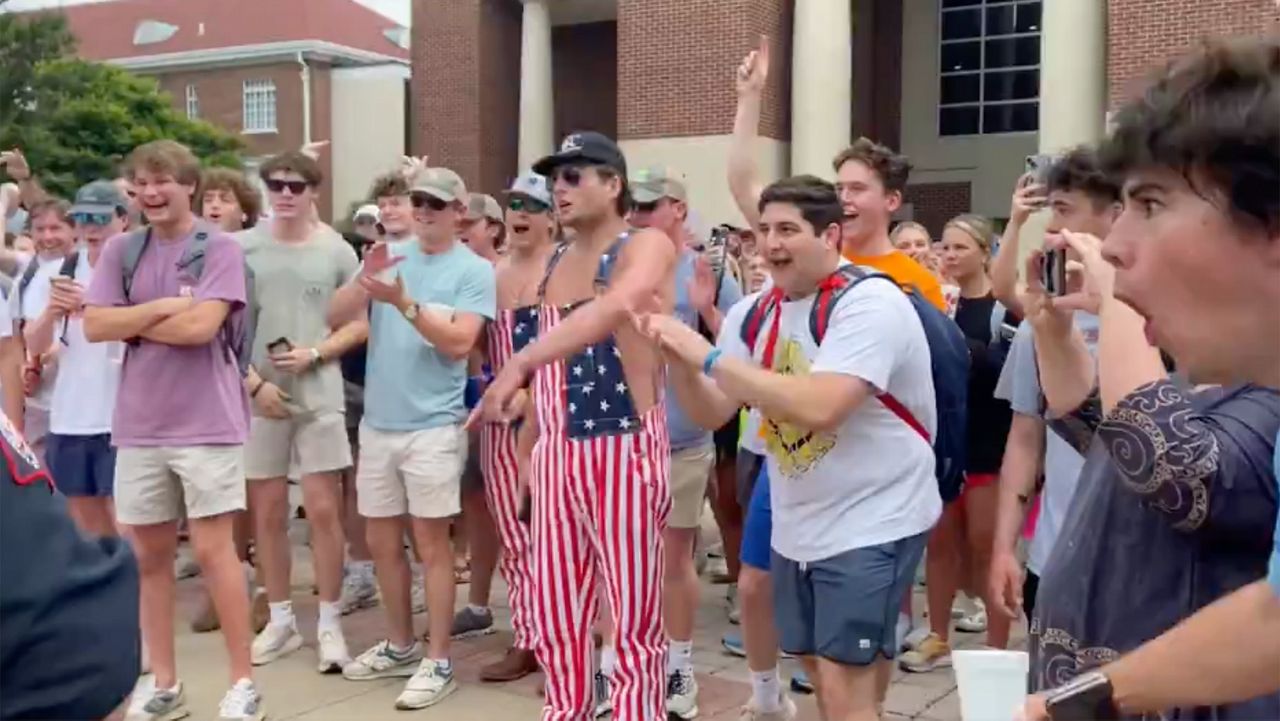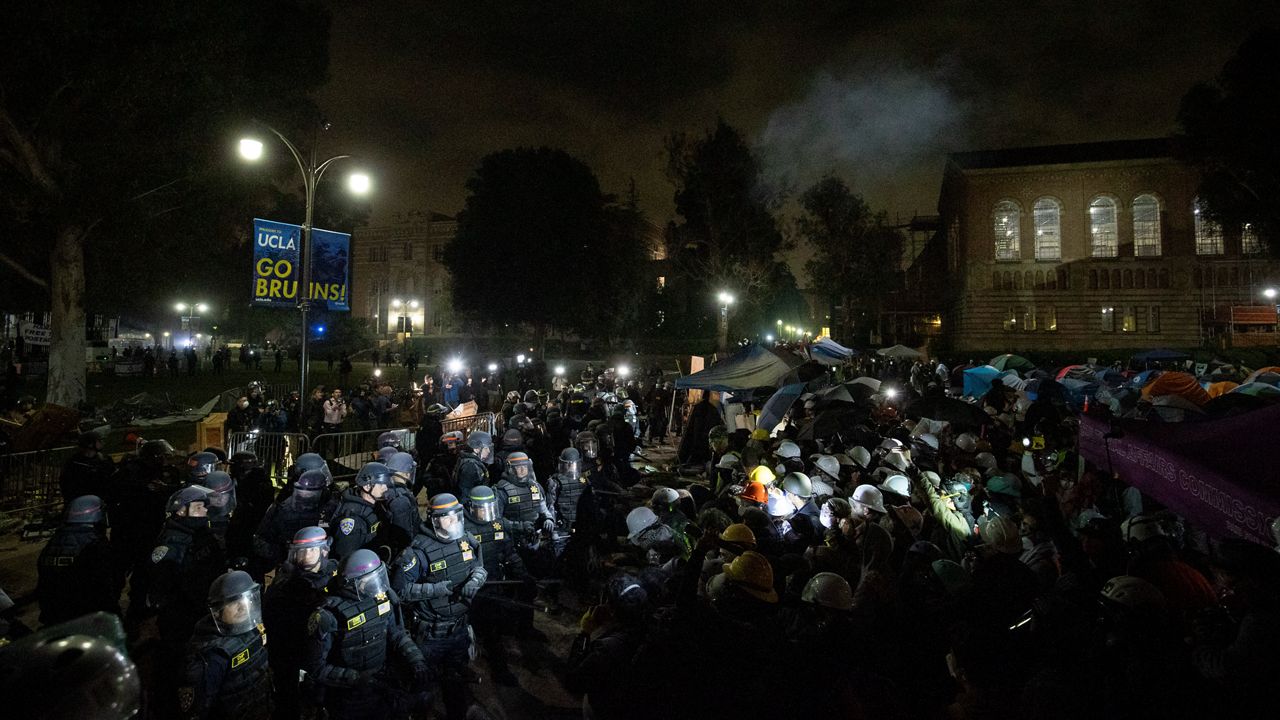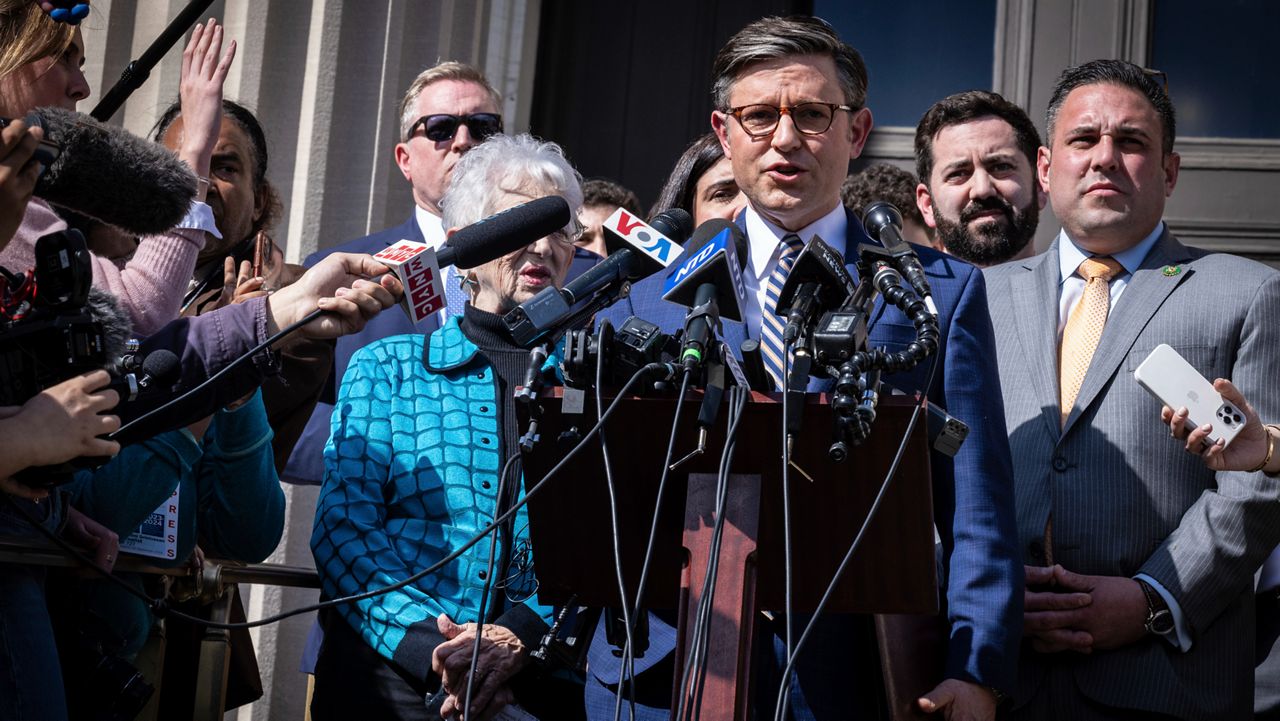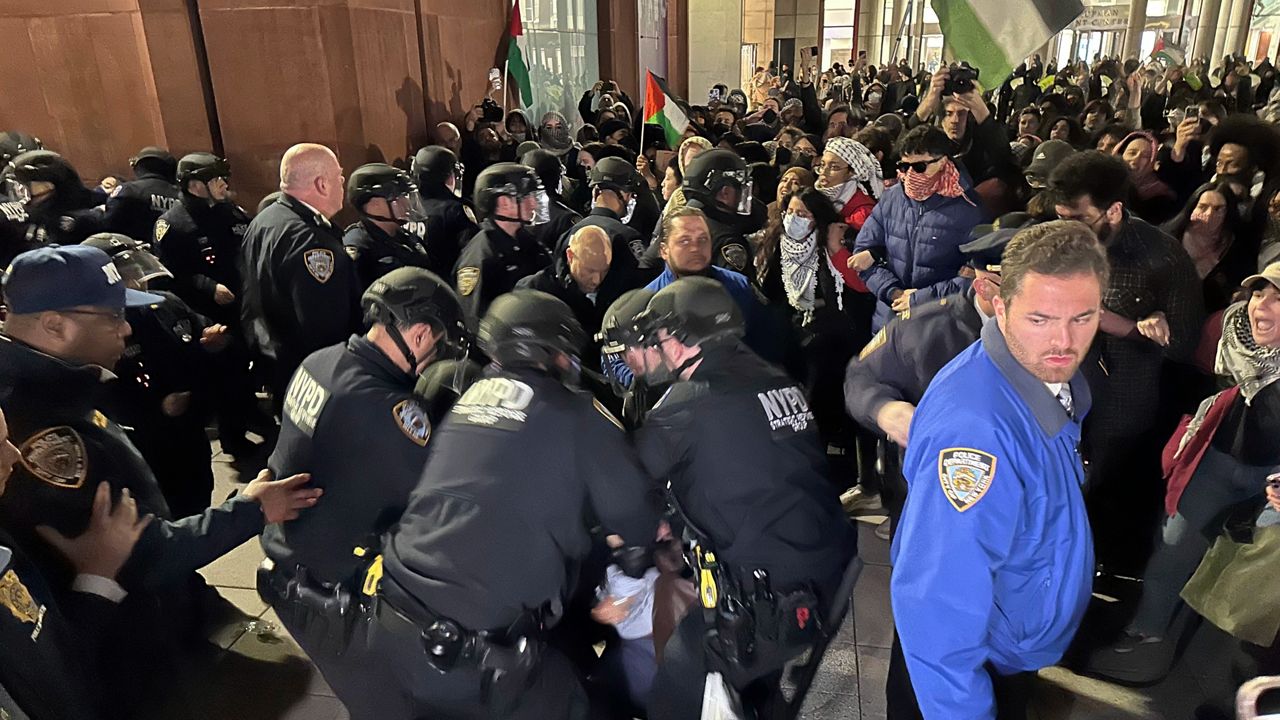More than 1,000 people have been arrested at student-organized protests of Israel’s war effort in Gaza on university campuses across the country in the ten days since 108 were arrested at New York City’s Columbia University, a Spectrum News analysis of police data, university statements and media reports found.
On Saturday alone, at least 306 were arrested across five campuses from Arizona to Boston, police and university officials said. The vast majority of those arrested on Saturday, as has been the case throughout the country at campus protests, were arrested on charges of trespassing or disorderly conduct.
What You Need To Know
- More than 1,000 people have been arrested at student-organized protests of Israel’s war effort in Gaza on university campuses across the country in the last ten days
- On Saturday alone, at least 306 were arrested across five campuses from Arizona to Boston, police and university officials said
- The vast majority of those arrested on Saturday, as has been the case throughout the country at campus protests, were arrested on charges of trespassing or disorderly conduct
- Over 20 institutions have called state and local police on their own students and faculty members resulting in violent clashes and hundreds of arrests
“I could not believe that this was happening. This is something you see on the news. Like I saw it happening at Columbia and I never believed it would happen here in Bloomington, Ind.,” Malaika Khan, a student at Indiana University, told local TV news network WHAS 11. Police there clashed with protesters and arrested 23 on Saturday after arresting an initial 33 protesters on Thursday.
“It was terrifying,” Khan added.
Universities have grappled with the protests, which largely have taken the form of encampments of students on school property, as the end of the spring semester and graduation ceremonies rapidly approach. While some have offered student protesters amnesty or declined to call in law enforcement, over 20 institutions have called state and local police on their own students and faculty members resulting in violent clashes and hundreds of arrests.
Some universities have canceled classes, moved courses online or closed all or parts of their campuses. The University of Southern California canceled their main graduation ceremony on May 10.
While Columbia University students were not the first in the country to be arrested or build encampments on school property to protest what organizers call Israel’s “genocide” of Palestinians in Gaza, the aggressive approach by the New York Police Department on April 18 has inspired dozens of copycat protests and sparked a movement that has garnered international attention, including in Gaza. The protests are calling for an end in the war in Gaza and for their institutions to divest from weapons manufacturers, Israeli companies and, in some cases, the Israeli government itself.
In the nearly seven months since the war began with Hamas’ attack on southern Israel that killed 1,200, Israel has killed more than 34,000 Palestinians in the Gaza Strip, mostly women and children, according to the local health ministry. U.S. student protesters frequently note there are no universities left in Gaza — earlier this month, the United Nations decried the “systematic destruction” of the Palestinian education system in Gaza, reporting 5,800 students and teachers had been killed. Over 80% of schools in Gaza were damaged or destroyed, U.N. experts said.
U.S. officials as powerful as President Joe Biden, former President Donald Trump and Speaker Mike Johnson, R-La., have condemned the protests over reports of antisemitic rhetoric, but organizers have insisted antisemitism comes from those outside of the movement, not within.
“They have killed in the last six and a half months, 33,000 Palestinians, wounded 77,000 — two-thirds of whom are women and children. They have destroyed over 60% of the housing. They have destroyed that health care system. They have destroyed the infrastructure, no electricity, very little water. And right now, we are looking at the possibility of mass starvation and famine in Gaza,” Sen. Bernie Sanders, I-Vt., said on CNN’s “State of the Union” on Sunday, when asked about claims of antisemitism at the campus protests. “When you make those charges, that is not antisemitic. That is a reality.”
“I’m Jewish. My father’s family was wiped out by Hitler. Antisemitism is a disgusting and vile form of bigotry which has killed millions of people,” Sanders added.
In Boston on Saturday, police in riot gear cleared an encampment on the campus of Northeastern University. Massachusetts State Police said about 102 protesters were arrested and will be charged with trespassing and disorderly conduct. Protesters said they were given about 15 minutes to disperse before being arrested.
Northeastern said in a statement that the demonstration, which began two days ago, had become “infiltrated by professional organizers” with no affiliation to the university and antisemitic slurs, including “kill the Jews,” had been used.
“We cannot tolerate this kind of hate on our campus,” the statement posted on social media said.
The Huskies for a Free Palestine student group disputed the university’s account, saying in a statement that counterprotesters were to blame for the slurs and no student protesters “repeated the disgusting hate speech.”
Students at the Boston protest said a counterprotester attempted to instigate hate speech but insisted their event was peaceful.
Another 100 were arrested at Washington University in St. Louis, the university said in a statement, after violating campus policy by setting up tents. All were charged with trespassing, though the university said “some may also be charged with resisting arrest and assault.” The university claimed three police officers were injured, but referred questions on charging decisions to the local prosecutor’s office, which did not immediately respond to a request for more information.
And Arizona State University said 69 people were arrested early Saturday on suspicion of criminal trespassing for setting up an unauthorized encampment on a lawn on its Tempe campus.
“While the university will continue to be an environment that embraces freedom of speech, ASU’s first priority is to create a safe and secure environment that supports teaching and learning,” the university said in a statement.









